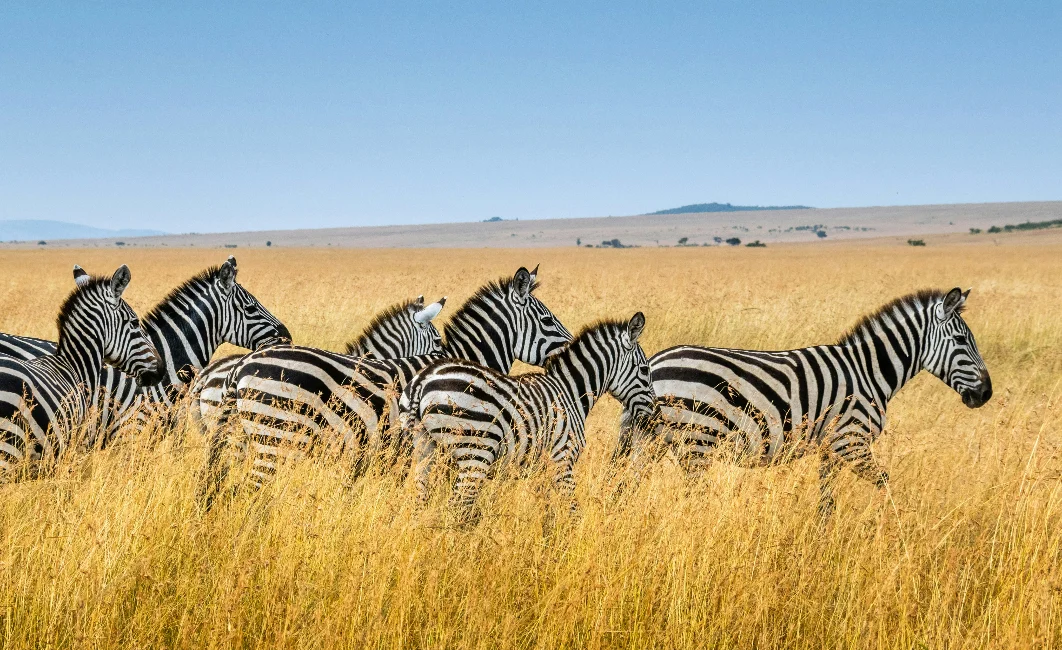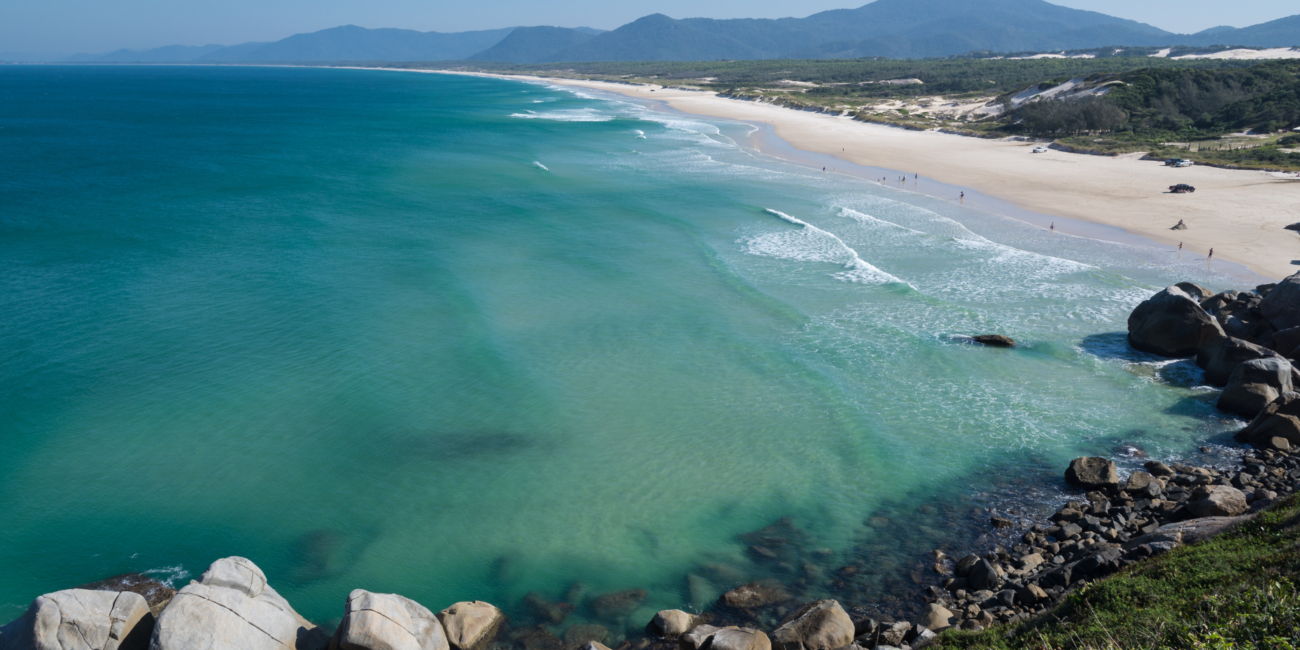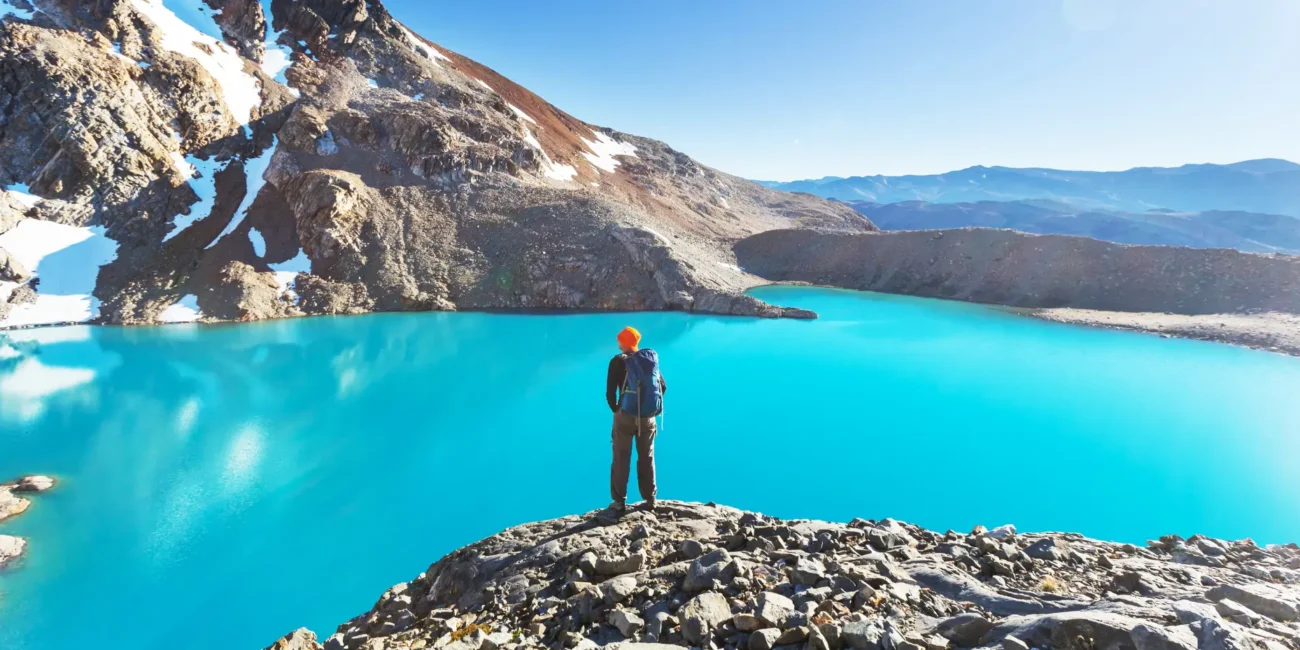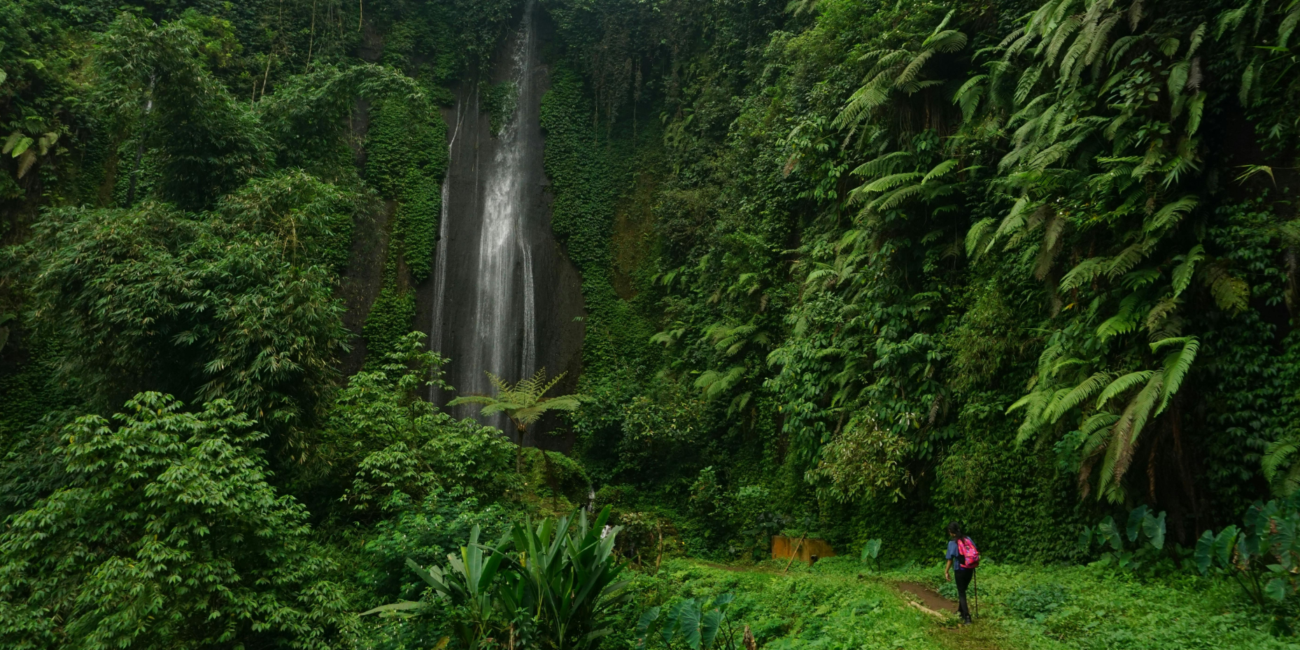Far more than a buzzword, the concept of rewilding is a hopeful return to nature’s rhythm that forward-thinking destinations, pioneering properties and visionary conservation organisations are embracing. It represents the future of sustainable conservation travel where landscapes are reawakened.
At its core, rewilding is a form of ecological restoration that seeks to bring back naturally occurring species and systems, allowing ecosystems to heal, adapt and thrive. It reverses the tide of human degradation, then steps back to let nature take its course. After all, these wild, breathing landscapes sustain all life on Earth.
The benefits of rewilding ripple far beyond the wilderness itself: communities flourish with renewed purpose and opportunity, ecosystems regain their delicate balance and the planet moves one step closer to climate resilience. Rewilding is essential for all of us.
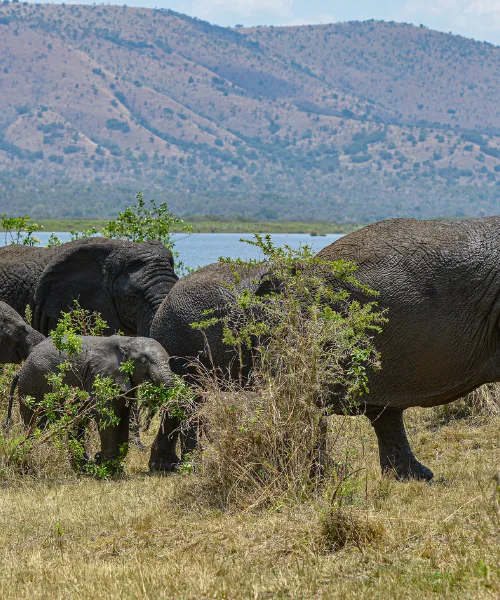
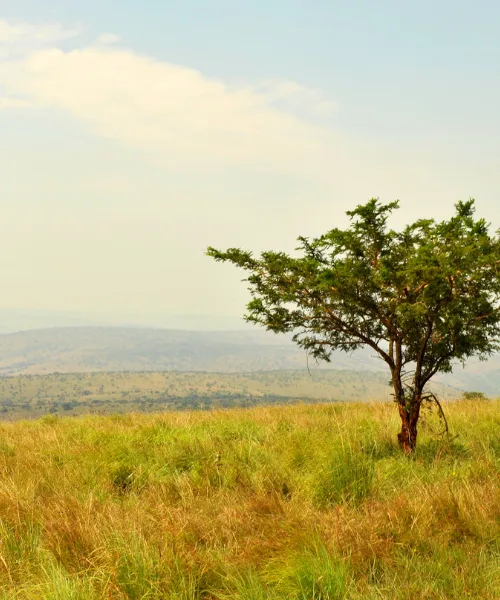
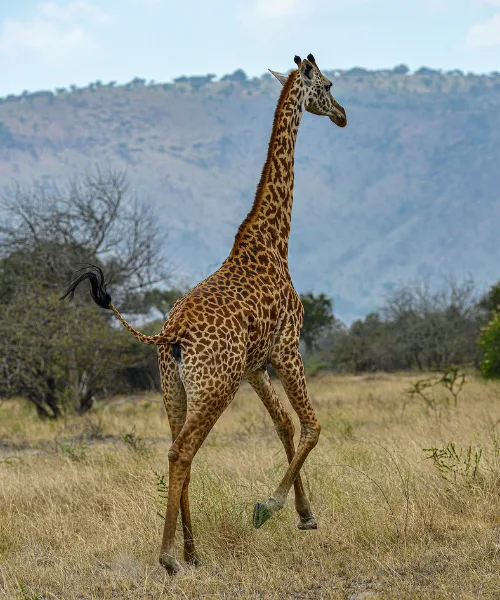
What is a Rewilding Trip?
A rewilding trip invites travellers to go beyond traditional tourism and become active participants in the Earth’s restoration. By choosing destinations and eco-conscious properties that are involved in reintroducing native species, restoring degraded habitats and supporting conservation, travellers contribute directly to the benefits of rewilding.
Whether you’re drawn to Africa’s wild savannahs, the wetlands of South America or the re-emerging wild spaces of Europe, there are powerful examples of rewilding in action across the globe. By selecting the right journey—or seeking the expert guidance of our Impact Journey Specialists—you become part of a movement that benefits both wildlife and the communities who call these places home.
A good first step is to ask:
- Has this destination successfully reintroduced species or restored key habitats?
- Does it work in close partnership with local communities?
- Does it operate under clear, transparent and measurable conservation goals?
Responsible operators will be proud to share their impact, making it easier for you to make ethical, eco-friendly travel choices that leave a lasting legacy.
Environmental Benefits of Rewilding Trips
The benefits of rewilding extend deep into the natural world, transforming degraded landscapes into thriving, self-sustaining ecosystems. One of the most powerful outcomes is the restoration of biodiversity, with native species returning to places where they had once vanished due to poaching, habitat loss or human conflict.
The rewilding of the Iberian lynx habitat in the Mediterranean is a fantastic example. Each animal plays a vital role in rebalancing the ecosystem, from grazing herbivores that encourage the growth of vegetation to apex predators that regulate populations and protect the food chain.
These ecological ripple effects lead to healthier soils, richer plant life and more resilient habitats, where nature begins to manage itself once again.
Rewilding trips also offer a hopeful response to the climate crisis—through reforestation, grassland restoration and the protection of natural carbon sinks, these projects can capture carbon, reduce greenhouse gas emissions and help stabilise global temperatures. This impact contributes to the health of the entire planet.
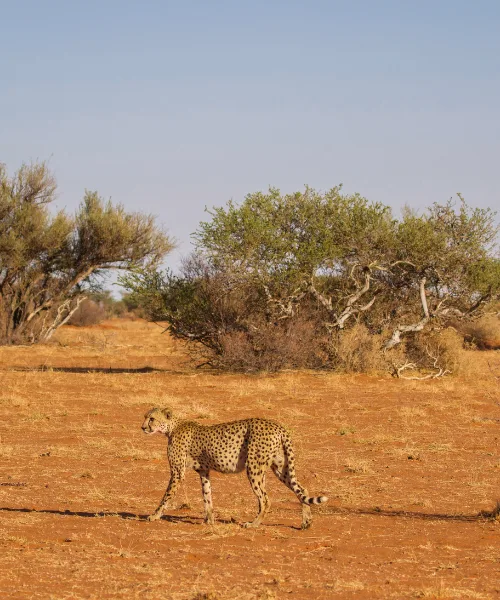
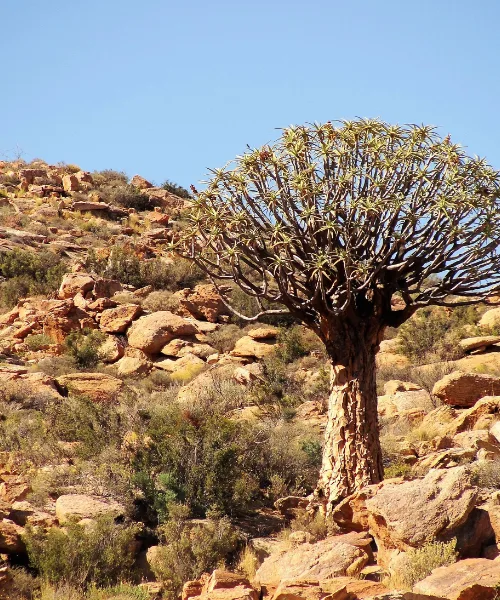
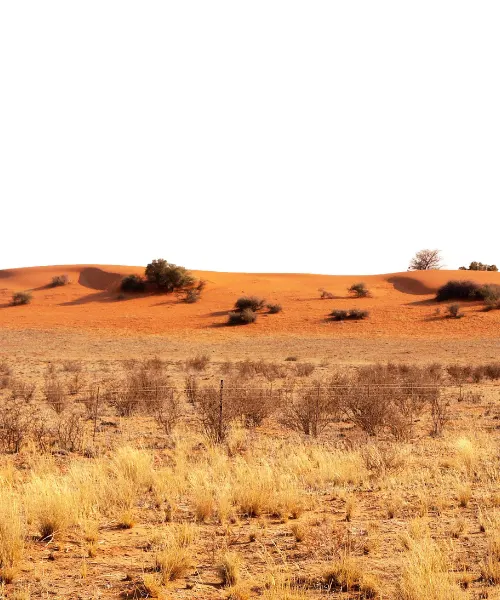
Community Benefits of Rewilding Trips
In most cases, rewilding trips involve working closely with local communities, providing them with employment opportunities which are often in short supply in the world’s more rural areas. By ensuring local people are empowered and actively involved in rewilding projects (and in some instances pioneering them), there is a greater likelihood of success.
Improved ecosystems result in greater interest from environmentally conscious travellers, creating manifold economic opportunities for people to develop unique ecotourism-focused properties and experiences, as well as the supply chain that all of these businesses rely on for everything from freshly grown food to transport providers. This ensures that economic prosperity extends from those directly involved in ecotourism and rewilding projects to the greater community.
Just as travellers have the opportunity to learn during rewilding trips, gaining a deeper understanding of how the natural world operates, so too do local communities have the chance to become ambassadors for their natural heritage. Often, conservationists work closely with local schools to run educational conservation awareness programmes that create the next generation of environmental stewards.
Rewilding Success Stories
Across the globe, rewilding is transforming once-depleted ecosystems into thriving sanctuaries that serve as testaments to what’s possible when people and nature work together. Many of these remarkable projects are directly connected to eco-conscious tourism, offering travellers the rare opportunity to witness nature’s revival firsthand and engage with the conservationists leading the charge.
Below are just a few standout examples where rewilding is creating lasting change for wildlife, landscapes and local communities alike.
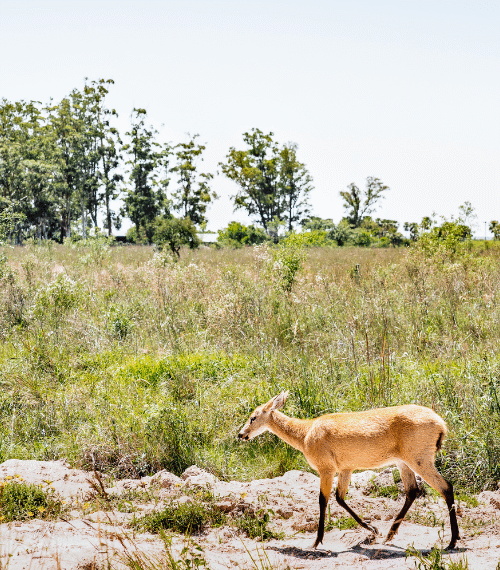
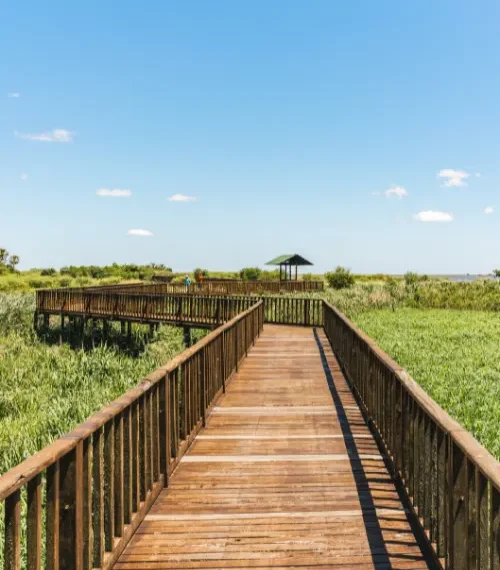
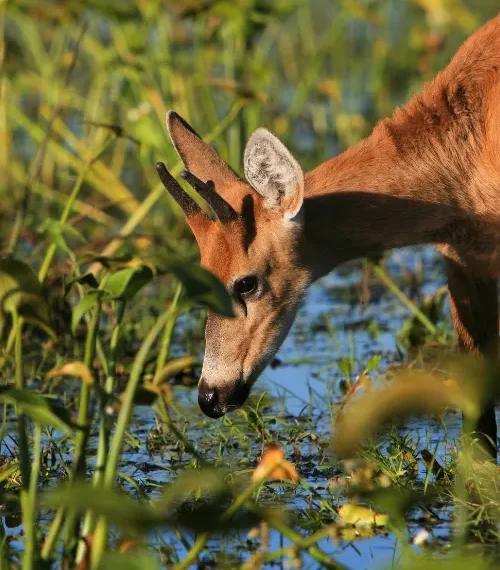
Akagera National Park, Rwanda
Once on the brink of collapse, Akagera National Park is now one of Africa’s most inspiring examples of rewilding success. In the years following the 1994 genocide, widespread poaching and agricultural encroachment had devastated Rwanda’s only savannah ecosystem, threatening both its wildlife and ecological integrity. In 2010, a bold partnership between the Rwanda Development Board and African Parks began the park’s extraordinary revival. They rapidly brought poaching under control and carefully reintroduced native species, including lions, white rhinos and black rhinos, to revive the natural balance.
Today, Akagera is home to nearly 12,000 wild animals, up from fewer than 5,000 just a decade ago. The transformation has also empowered local communities through employment, tourism and pride in their national heritage. For those wishing to witness this conservation success story firsthand, Magashi Camp and Ruzizi Tented Camp offer immersive stays at the heart of the park’s rejuvenated wild.
Tswalu Kalahari, South Africa
At the southern edge of the Kalahari Desert lies Tswalu, South Africa’s largest privately protected reserve, an awe-inspiring example of how rewilding can breathe new life into once-exploited lands. The story began in 1999 when the Oppenheimer family took over stewardship of the land, continuing the vision of the late Stephen Boler, who had acquired a patchwork of cattle farms with one goal: to restore this semi-arid wilderness to its original state.
Since then, they have transformed 43 former livestock farms into a unified conservation sanctuary. They have also carefully resettled native species, such as the elusive black rhino and the iconic black-maned Kalahari lion, helping to reestablish the delicate ecological balance unique to this region.
Visitors to Tswalu can immerse themselves in the rewilding journey, joining researchers in the field, learning from expert guides and staying at one of three intimate properties: Loapi, Motse, or Tarkuni.
Iberá National Park, Argentina
A vast mosaic of shimmering lagoons, sweeping grasslands and dense forests, Iberá National Park is one of South America’s great rewilding triumphs. Once severely degraded by cattle farming and habitat fragmentation, this region, home to the world’s second-largest wetland, began its transformation in 1997, thanks to the visionary work of conservationists Doug and Kris Tompkins.
Under the Rewilding Argentina banner, the team collaborated with local communities, governments and private partners to reawaken the Iberá ecosystem and officially establish the national park in 2018. Since then, they have documented more than 4,000 species of flora and fauna, and reintroduced several iconic species once lost to the region.
Today, visitors may encounter capybaras, maned wolves, black howler monkeys and even the elusive jaguar, now roaming free again after years of absence. To witness the magic of this restored wilderness, a stay at Rincón del Socorro offers intimate access to both wildlife and the inspiring people behind this landmark rewilding initiative.
Interested in Experiencing the Benefits of Rewilding Firsthand?
Journeys With Purpose offers private, conservation-focused adventures, with tailor-made itineraries built around your passions. We also plan hosted journeys – get in touch with our expert travel specialists today on +44 20 8044 9538 or at connect@journeyswithpurpose.org.
